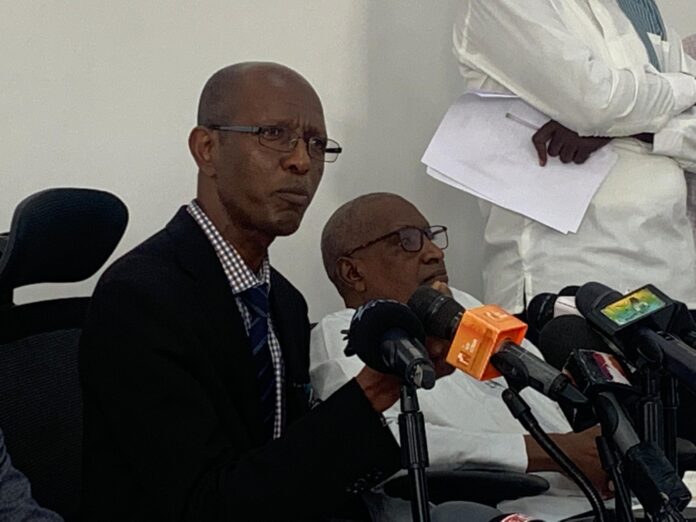By Mama A. Touray
The Gambia has not experienced a total blackout since the termination of its contract with Karpowership on Friday, 2 May 2025, according to the Managing Director of the National Water and Electricity Company (NAWEC), Galo Saidy.
Saidy made the remarks during a press briefing in Jabang, where he addressed the country’s energy transition following the departure of the Turkish-operated power provider.
“Karpower leaving today is not the end of the world. We are okay now. We can see [there has been] no blackout since then. No total blackout since Karpower left. All the faults we are getting now are the normal faults that we get even when Karpower was here. I know some people will try to associate that with saying Karpower is gone, so we don’t have power, but it is not related at all,” said Saidy.
Karpowership began operations in The Gambia in 2018 under a temporary two-year agreement. Saidy acknowledged the company’s reliability during its tenure, calling it a “very good job” amid the nation’s energy challenges. However, he noted that repeated extensions of the contract were necessary due to delays in establishing alternative infrastructure.
“For seven years now, they have been here, but what I can say today is that the reality is we do not need Karpowership today because we have options. This business is just like a market where you have different salesmen selling the same commodity, so you buy from the cheapest commodity,” Saidy explained.
He outlined current energy sources, including imports from Conakry (Guinea) and Senegal, solar plants in Jabang and Jambur, and potential future imports from the Ivory Coast and Nigeria. Saidy also highlighted critical infrastructure upgrades, such as the new 225kv transmission line linking Brikama to Jabang, which enables efficient power distribution across the Greater Banjul Area (GBA).
“Before, four to five months ago, this 225 line was not here. We couldn’t evacuate power beyond Brikama to Banjul the way we wanted. Now, with the 225, we can,” he said.
Saidy defended the decision to end the Karpowership partnership, stressing alignment with The Gambia’s energy roadmap: “It was not easy to let go of a reliable partner, but we must make the right decision. The strategy is to buy from the cheapest source.”
The remarks come amid public scrutiny over the country’s energy stability, with Saidy urging citizens to view localised faults as routine rather than linked to Karpowership’s exit.




